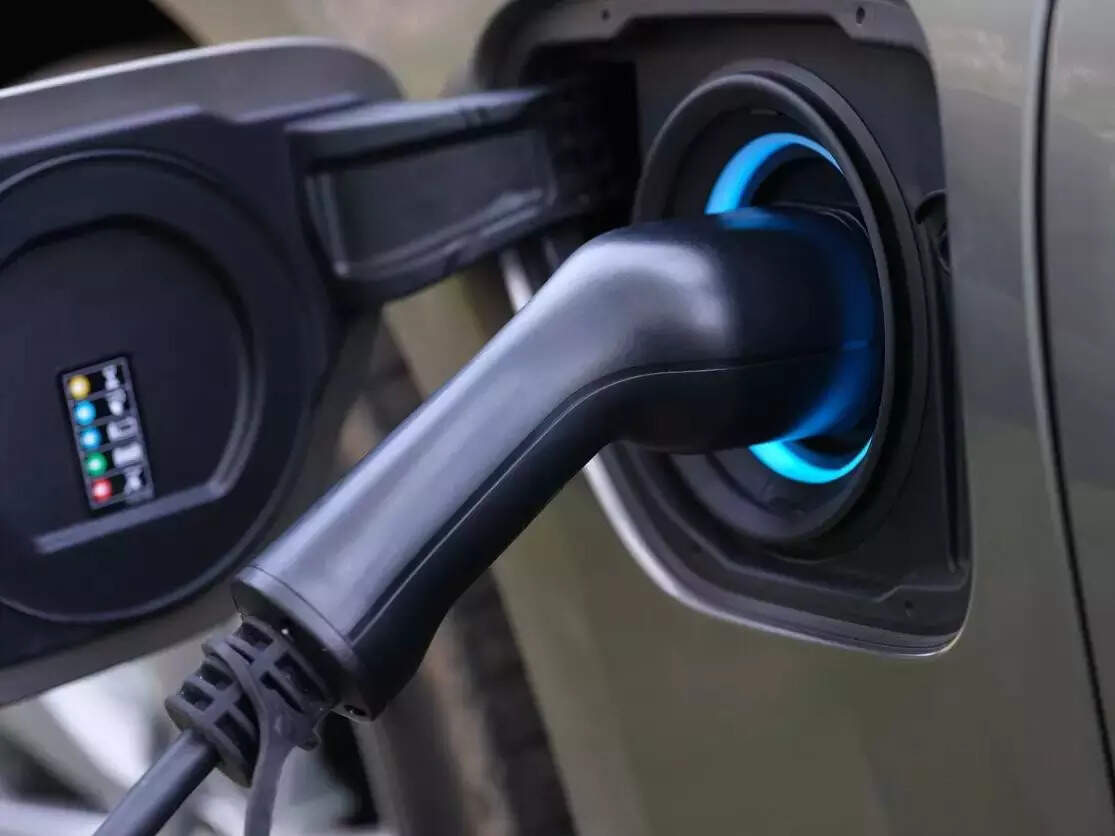
All 25 stations of the Delhi-Ghaziabad-Meerut Regional Rapid Transport System (RRTS) corridor will have electric vehicle (EV) charging stations in their parking areas to boost convenience, clean energy adoption and last-mile connectivity. The first charging station was recently opened at Sahibabad, which is part of the already operational 34km stretch.
An official of National Capital Region Transport Corporation (NCRTC), which is executing the project, said, “In line with NCRTC’s broader vision to provide a green and sustainable transport system, the project aims to provide EV charging stations at all 25 stations.”
The official added that this step would not only enhance the last-mile connectivity but also contribute towards minimising air pollution. “Electric vehicle owners will gain access to the charging facility through a dedicated mobile application, enabling them to monitor electricity consumption during charging sessions,” said another official. The users can also pay for the electricity units consumed through the same mobile application, with the added flexibility of online payment options, he added. An attendant will initially be there to assist users.
Similar facilities are available at parking lots of Delhi Metro Rail Corporation. TOI had earlier reported that the e-charging infrastructure was available at 70 parking spaces of Delhi Metro.
Currently, a 34km section between Sahibabad and Modi Nagar North of the Delhi-Ghaziabad-Meerut RRTS corridor, which includes eight stations, is operational. The Delhi stretch comprising four stations is likely to become ready by early 2025, and the entire 82km corridor is expected to be operational by June 2025.
After Sahibabad, EV charging facilities will be extended to other operational RRTS stations, including Ghaziabad, Guldhar, Duhai, Duhai Depot, Murad Nagar, Modi Nagar South and Modi Nagar North. “This expansion will not only benefit RRTS passengers but also allow access to local residents. The facilities will be further extended to Delhi and Meerut stations after the opening of the entire corridor,” said an official.
Focusing on environmental sustainability, NCRTC aims to cover 70% of the total energy requirement of the entire corridor through solar energy. “To achieve this, all elevated stations and depots will be equipped with solar panels, exemplifying NCRTC’s proactive approach towards clean energy adoption,” said the official.
The goal, he added, is to increase the share of renewable energy by generating about 11MW peak in-house solar power on the rooftop of stations, depots and other buildings for non-traction — operational — purposes over the next five years.

